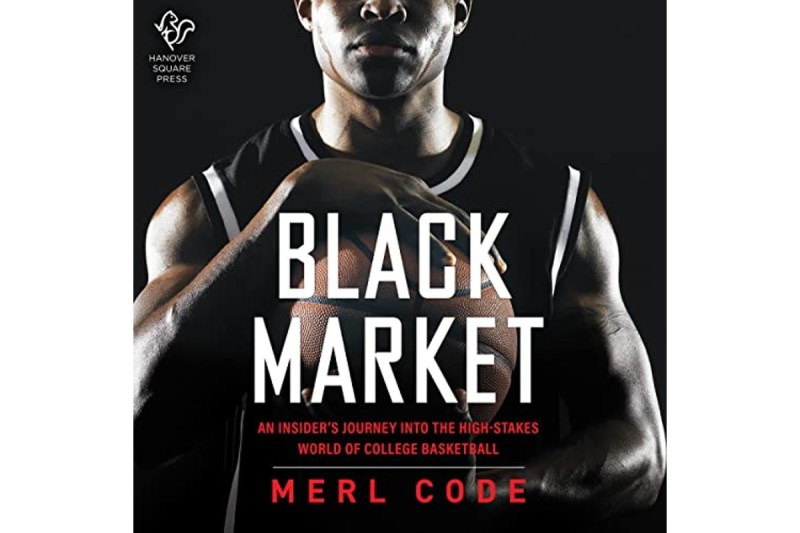Merl Code just released a new book. He’ll have to celebrate and publicize it from prison, however.
The former college basketball player and major shoe rep is heading to the clink as Black Market hits bookstores. The insider’s account is an explosive screed on the dark underworld of college basketball that not only exposes the corrupt and racist systems that exploit young athletes but may signal a new way forward.

In 2017, the FBI punctured college basketball with a media-grabbing press conference from the U.S. Attorney’s office for the Southern District of New York. Part of the pony show included outing big names like Sean Miller (who still remains at the University of Arizona) and Rick Pitino (who has somehow bounced off the mat after numerous scandals) as leading actors in a systemic pay-for-play scandal. The name-drops excluded, none of these coaches came close to facing time behind bars. It’s the foot soldiers meant to serve as meat for the grinder who did time. Code was one of those guys.
“I do not think it was an accident that the famous, mostly white, head coaches and university administrators were shielded from the legal implications, and even the public scrutiny, that came from the FBI investigation,” Code wrote in Black Market.
In lieu of bigger game, the former apparel executive at Adidas and Nike faces nine months in federal prison sometime soon. Code, though, isn’t going down without a fight.
Related Guides
“A moneymaking scheme to rake in billions of dollars, while the workers producing the product aren’t allowed to profit themselves? Students of American history, or world history for that matter, will be tempted to say they’ve heard of this type of arrangement before. Indentured servitude is a nice way of calling it what it actually is: A form of slavery,” Code wrote in Black Market.
Code spares no one, revealing arrangements made for superstars like Zion Williamson (Duke) and Anthony Davis (Kentucky), and, back to Pitino, an infamous six-figure deal to secure Brian Bowen to Louisville. It’s a business model as old as the industry: Stay on the gray edge, in an obvious mockery of amateurism’s frayed flag.
Although Adidas was the focal point of the college basketball corruption trial four years ago, Code finds Nike just as culpable.
“Nike schools pay, too,” Code said in a conversation recorded by federal investigators in 2017, per Pat Forde, Pete Thamel, and Dan Wetzel of Yahoo Sports. “It’s a corrupt space as it is and cheating is cheating. Whether I give you a dollar, 100,000, or I get your mom and dad jobs, it’s cheating. … So in some form or fashion, Duke, North Carolina, Syracuse, Kentucky, and all of the schools are doing something to help get kids. That’s just a part of the space.”
Code’s story is not only a fascinating dive into just how dirty the system gets when everyone accepts graft, but it could also serve as a prescient epitaph on a corrupt pay-for-play system that’s tilting toward hypocrisy over honesty.
In July 2021, the NCAA instituted an interim policy that allows student athletes from all three divisions to monetize their name, image, and likeness (under the acronym NIL). Student-athletes can now accept brand endorsements, monetize social media presences, and work with PR firms to coordinate deals.
“Should paying talented athletes something approaching a fair living wage be a crime?” Code asks. “Is it really so wrong for the NCAA student-athletes to get a small piece of the wealth they generate for their schools and apparel outfitters?”
Read More: Kanye West’s “Sulfur Yellow” Adidas Yeezy Boost 700



